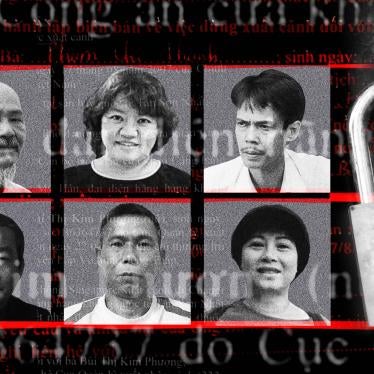(New York) The Malaysian government should drop its case against the news website Malaysiakini, Human Rights Watch said today. On October 6, the government announced that it had forwarded its nine-month-long investigation to the attorney general for a decision on whether to prosecute.
The government began investigating the popular online news outlet for posting a letter to the editor on January 9 that criticized government policies favoring ethnic Malays.
“Malaysiakini is one of the few independent media voices in Malaysia,” said Brad Adams, executive director of the Asia Division of Human Rights Watch. “The government has been investigating Malaysiakini for almost ten months for simply posting a political letter. It’s time to close the case and move on.”
An official of the United Malay National Organization (UMNO), the party that dominates Malaysia’s ruling coalition, called the letter “seditious” and claimed that Malaysiakini’s decision to publish it was “very dangerous to the harmony of this country.” Another UMNO official called for prosecution of the website’s publishers under Malaysia’s Sedition Act in order to “teach them a lesson.”
The police raided Malaysiakini’s offices on January 20 and confiscated 15 computers and four servers. The police have returned most of the equipment, but still hold two computers for possible use in court as evidence.
The Malaysian government has frequently stated that it will not censor the Internet, in part to attract international investment to its high-technology sector. In 1996, Malaysia introduced the Multimedia Super Corridor Bill of Guarantee, which stated that the government would “ensure no Internet censorship.”
Malaysiakini began operating in November 1999, and has since become one of the leading independent Internet news outlets in Malaysia. It is one of a handful of print and online publications that offer an alternative view to Malaysia’s largely pro-government mainstream media, much of which is owned by large corporations affiliated with UMNO. Because Malaysiakini is available only online and not in print form, it is not subject to many of the onerous licensing requirements that print publications must follow.
“This controversy is not just about the staff of Malaysiakini,” said Adams. “It’s about the right of all Malaysians to receive news and opinion unfiltered by the government. Malaysiakini has been singled out precisely because it does what many other news sources in Malaysia don’t do: it criticizes all sides, including the government. It shouldn’t be investigated or punished for doing so.”
Media freedom is a particularly sensitive issue in Malaysia as the country gears up for national elections, which may be called as early next year. During Malaysia’s hard-fought 1999 elections, opposition parties—some running for the first time—complained that they could not get a fair hearing because of the media’s heavy bias in favor of the UMNO.






